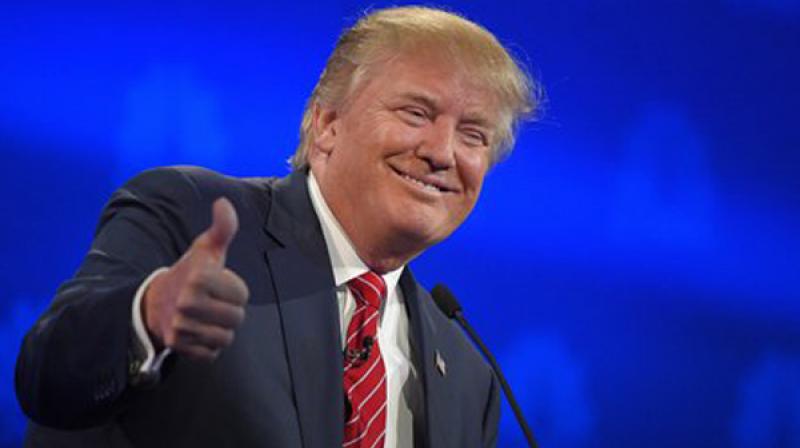State of the Union: Dysfunctionality, drift lingers in Trump's US

Exactly a year ago I had vividly sketched out the dysfunctionality that had come to characterise America’s capital after Donald Trump became President. A year later, on a recent visit to Washington DC, the feeling of dysfunctionality and drift seems to be only perpetuating itself into a seeming permanence.
The thing that strikes you immediately after landing at Dulles Airport is the wall-to-wall coverage of the Mueller inquiry on alleged Russian interference into the American elections. Coupled with that is the endless parade of key aides resigning from the White House. The spate of resignations has so far claimed about 20 key presidential appointees, and the haemorrhaging shows no sign of stopping. The latest to join the list of departees is White House director of communications Hope Hicks.
The obvious question that one is compelled to ask all those you meet inside the Beltway is how does it all square up? It is the all-consuming chaos bordering on virtual anarchy. A President battered day in and day out by influential sections of the media, giving it back to them as hard he gets: unrelenting multiple investigations by a special counsel, House and Senate committees, departures and pink slips galore. Among all these “little” distractions the business of the state ostensibly being run. After all, the US is still the most powerful nation in the world and continues to remain the most influential outside power balancer in many volatile regions of the world.
Ironically, making sense of all this to the world at large is still the “swamp” that Mr Trump promised to drain. The lobbying outfits, law firms, think tanks and other such instrumentalities called the big and small public interest groups (Pigs) — an echo system that stretches all the way back to the end of the Second World War.
The answer that one hears from the various “gurus of Washington’s Beltway” may surprise you. The Beltway being a synonym for Lutyens’ Delhi, all this does not matter. Outside Washington’s elite clubs and rarefied salons Mr Trump remains popular with his core base intact. The gurus opine that more the efforts to demonise Mr Trump get shriller, the more sympathy it ends up garnering for him.
However, there are some real issues that Mr Trump and whatever remains of his musical chairs administration need to find mind space for. There is a growing feeling among the policy wonks in that town that Afghanistan is a quagmire that has now sucked the energies of the administration for over 17 long years. One can feel, if not see and hear, shades and blushes of the apparition “graveyard of empires” haunting the American administration.
Notwithstanding the South Asia policy review (read Afghanistan) last year, there is a feeling of wanting an out as expeditiously as possible. The super olive branch extended by President Ashraf Ghani to the Taliban at the second round of the Kabul Process is but a manifestation of the American weariness to shoulder the security and economic burden interminably.
Another portentous thought that is being very cautiously whispered by well-informed people is the possibility that the US may end up getting drawn into a conflict situation with North Korea. This view flies in the face of conventional wisdom that two nuclear states, irrespective of the asymmetry, must never ever be drawn into anything even remotely resembling a close encounter. However, given the fact that this is not a careless whisper and neither the handiwork of conspiracy theorists it should not be ignored.
Then there is the ubiquitous Russian question. In a recent address President Vladimir Putin revealed that Russia had tested a new nuclear cruise missile that is capable of evading all anti-ballistic missiles and theatre missile defence systems. He claimed Russia possessed: “a low-flying, low-visibility cruise missile armed with a nuclear warhead and possessing a practically unlimited range, unpredictable flight path and the capability to impregnate practically all interception lines is invulnerable to all existing and future anti-missile and air defence weapons”. This declaration sparked off speculation of a new cold war.
The continuing turmoil in West Asia accentuated further by Mr Trump’s declaration to shift the US embassy in Israel to Jerusalem has further roiled a region already in the grip of existential ethnic and religious conflict. The fallout of the announcement to move from Tel Aviv to Jerusalem by May 2018 will have implications that even the US national security establishment will find very hard to handle.
Amidst all these potential minefields the trade wars that Mr Trump has recently unleashed come in handy as more than just a distraction. The recent decision to impose/raise tariffs on imported steel and aluminium coupled with the grief that Mr Trump has given Prime Minister Narendra Modi over the Harley Davidson issue not limited to publicly mimicking him twice over serve the purpose of shoring up his base not only in the Rust Belt but among the vast multitudes of Americans who feel left out of the entire globalisation paradigm.
The renationalisation of America will not only fulfil the campaign promise of “America First”, but will give Mr Trump a plank for the next election, namely that America needs to retreat into a phase of exceptionalism whereby it needs to consolidate itself and engage with the world on its own terms. Will Mr Trump outsmart his baiters and the legions of prophets of doom baying for his blood 24x7 on television? The jury will remain out on that for quite a while.

